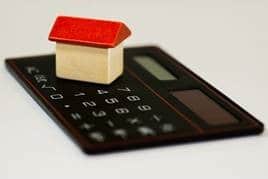
As a nation we are experiencing mandatory quarantine, historic unemployment rates1 and the continuing volatility of the stock market as we continue to be at the mercy of the COVID-19 crisis. Many are looking forward to when life will be back to normal; however, when it happens, it will be a different normal.
To mitigate the financial implications of the coronavirus, many seniors have turned to their existing reverse mortgages for financial help. A recent article published by Reverse Mortgage Daily, indicates that beginning in March 2020 the reverse mortgage industry has seen an increase in draws. Based on these withdraws, it reflects the dependability of using home equity in times of uncertainty.2
Now, more than ever, seniors have the opportunity to take advantage of the benefits of a reverse mortgage. At the close of 2019, seniors had a record high of $7.23 trillion in home equity3, and with the Federal Reserve’s recent rate cut4, this may be the perfect time to see if a reverse mortgage is an option for you.
A reverse mortgage loan is available to senior homeowners who are 62 years and older. It allows them to take part of their home’s equity and turn it into cash, monthly payments, or a line of credit. Many borrowers use a reverse mortgage to pay off their current mortgage loan which eliminates their monthly mortgage payment and can provide much needed extra cash flow.5 Furthermore, if a senior is looking to continue to shelter-in-place during this crisis, reverse mortgage proceeds can be used immediately to help cover daily expenses.
If you are looking to ease your financial burdens due to this economic crisis, a reverse mortgage may be able to help. Call 1-800-976-6211 to speak with a licensed loan officer.
Important Disclosures:
1https://www.bls.gov/news.release/pdf/empsit.pdf
2https://reversemortgagedaily.com/2020/04/06/coronavirus-crisis-leads-to-borrowers-using-standby-reverse-mortgage/
3 https://www.mpamag.com/news/senior-home-equity-hits-7-23-trillion-218938.aspx
5The funds available to the borrower may be restricted for the first 12 months after loan closing, due to HECM reverse mortgage requirements. In addition, the borrower may need to set aside additional funds from the loan proceeds to pay for taxes and insurance. The borrower must live in the home as their primary residence, continue to pay required property taxes, homeowners insurance, and maintain the home according to FHA requirements. Failure to meet these requirements can trigger a loan default that may result in foreclosure.
